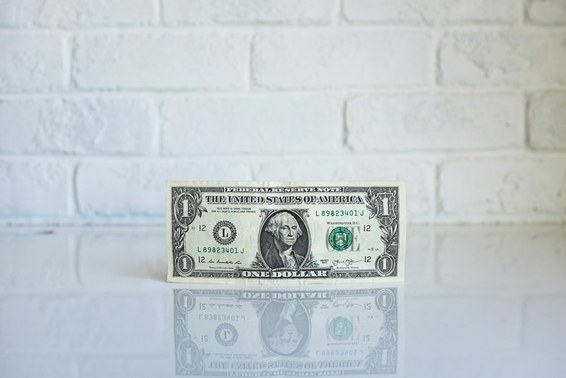Only a short year ago, the U.S. economy was experiencing what the Wall Street Journal called “weak momentum” and “stalled growth” at the start of 2019. Little did we know, the COVID-19 outbreak would wreak havoc on every country’s economy by March 2020. With forecasts of Q2 continuing to decline in the 2020 financial year, it is evident that we need to prepare ourselves for a recession. Is your company a recession-proof business or is it taking a hit like many others? How are businesses surviving during this significant economic downturn and what are they doing to stay afloat?
It’s hard enough to run and operate a business in the best of times and these responsibilities become especially difficult during a recession. That’s why people in an industry with an unpredictable market look for protective measures to weather the storm of economic declines. Even if you started your business during a strong economy, a recession could quickly turn that successful business into a sweet memory.
Some businesses, on the other hand, are essentially recession-proof. That means they either provide goods and services that people always need (perhaps even more during a recession), or their earnings are always low to moderate, so they always have to take extra precautions with their business strategies.
No matter the current financial health of your business, you never know what’s in store several years from now. In this article, we’re discussing some of the most popular recession-proof businesses and ways that you can learn from them to prepare yourself for the fluctuating economy. At VP Legacies, we believe in the power of communication. By learning how recession-proof businesses communicate effectively to maintain their cash flow and keep employees on board, you can learn how to help your company succeed in even the worst of times. By building personal connections through your communication strategies, you can help keep your business recession-proof.
What is a recession?

A recession is formally defined by the National Bureau of Economic Research (NBER) when the gross domestic product has declined for two consecutive quarters (6 months) in the economy. GDP is the measurement used to represent all of the goods and services produced in a country at a given point in time.
In simplest terms, recessions occur when there is a temporary drop in consumer spending causing an imbalance in the supply and demand in the economy. As consumers buy less goods and services, companies have to decrease their output, which leads to loss of production and sales causing companies to lay off workers. The loss of family household income will shift consumer behavior to be more conservative in spending money to only the most essential goods such as, food, toiletries, rent, and utilities.
Is there such a thing as a recession-proof business?
The short answer to that question is yes. During a recession, people turn towards cheaper product alternatives and certain financial services for assistance. In the era of the COVID-19 pandemic, more and more people are drawn to lower prices in order to hold on to cash for emergency situations.
If at one time someone shopped at a luxury boutique for their clothing, they may now turn to an outlet or department store. If they originally went to custom furniture manufacturers, they’d likely turn to retail furniture stores during a recession. Where customers were previously dining out 3-5 times a week, most are now social distancing at home and cooking instead.
We will always need and want things, but where we get them will change during a recession. The best recession-proof businesses are discount purveyors who offer cheaper items at a lower price in whatever industry. Further, businesses that stay in touch with their employees are more likely to experience higher retention rates and save orientation and training costs to the company. Finally, some businesses are thriving post-coronavirus by paying attention to consumer needs and pivoting their services toward a changing economic landscape.
Examples of recession-proof businesses
As we mentioned, the best recession-proof businesses are the ones that take an expensive offer that someone else has and they present it at a discounted price. That doesn’t necessarily mean that you need to lower your prices during a recession in order to stay afloat.
When audiences transition to a more affordable alternative, they’re likely to choose one they’ve already heard about. That means that the key to staying recession-proof is taking control of communication. Learn more about how recession-proof businesses use internal and external branding to prepare for tough years.
Food and Beverage

People need to eat to survive, but today’s global pandemic situation and associatedsocial distancing measures means dining out is no longer a possible option. High-end restaurants take a significant hit during a recession because people stop eating out and start cooking at home more often. For that reason, grocery stores are also a solid business model during a recession.
The grocery chain Hannaford owes its success to decentralized leadership. The 1980s recession hit many businesses in New England hard, but the company expanded into New York State and its profits increased to 18%. Its socio-technical model meant that both managers and employees had a say in hiring, pay scales, and rules – making sure that everyone felt heard. Because this fostered strong personal connection, employees were more likely to stay.
Related: Crisis Management For Businesses
Online Training and Learning
In recent years and especially in the post-covid world, scaling training online and moving educational programs online is extremely important. Therefore, companies and educational institutions who have embraced and are quickly embracing the online marketplace for education and training are recession proofing their businesses.
By moving training and education online, this drastically decreases costs over the long term for training and education due to the ability to scale and not have to pay for a brick and mortar space.
With the instant gratification culture we all live in today and attention spans getting shorter and shorter, embracing online micro-learning course production has become the best way to engage and scale training and education.
At VP Legacies, we specifically specialize in producing micro-learning curriculums rapidly without losing quality for time sensitive projects.
Comfort Food

During the age of COVID-19, where social distancing and isolation is essential to protect everyone, it is expected for people to feel anxious or lonely during such unprecedented times. What better way to revive joy other than indulging in the sweet, cool taste of vanilla ice cream, or smelling the savory whiff of the melted cheese right before taking a bite from a freshly, baked pizza. Restaurants are locations where consumers can share these tasteful experiences with others.
However, as more restaurants close to limit social interaction, there is a higher demand for consumers to replicate a similar ‘at-home’ comfort experience by purchasing savory and sweet foods. According to the New Your Times, the sales of Campbell’s soup soared 59% from a year earlier. Prego pasta sauce soared 59%, and sales of Pepperidge Farm Goldfish crackers climbed nearly 23%.” This purchasing behavior is also reinforced by delivery services by advertising comfort food as ‘Quarantine-snacks’ or ‘Shelter-In-Place” care packages.
Cleaning Services
As fears about infection and viral spread mount during the pandemic, cleaning services are emerging as a high-demand commodity. Cleaning companies that specialize in commercial buildings and healthcare facilities are experiencing a dramatic uptick in demands for their services. This also means many are depending on cleaning businesses to keep them safe and to take appropriate measures to ensure proper disinfection measures.
Because their clients are counting on them, cleaning companies are realizing that client communication is more important than ever. Illinois-based company Aftermath Services typically cleans up crime scenes and biohazard areas, but has been deluged with phone calls requesting coronavirus-related cleanings. In response, the company has redirected a large number of its workforce to answering calls and pivoting its services toward cleaning in a post-coronavirus era.
By opening up communication lines, many cleaning service companies are able to stay updated on their customers’ changing needs and expand their business scope in previously untapped areas. In what ways can your company optimize communication lines and learn how to grow even in an ever-changing economy? Take advantage of this downtime and learn how to level up your staff’s personal communication skills here.
Accounting Services

The accounting industry is actually one of the industries that might find themselves experiencing an increase in business during a recession. This is the case usually because businesses may come to accountants to help them find ways to save money and cut back some unnecessary costs.
Also, regardless of the state of the economy, a business will always have to file taxes, record paid bills, and track their revenue and cost.
Delivery Services

Like cleaning services, delivery companies are enjoying a rise in business these days. Social distancing measures across the globe means consumers are staying home and ordering groceries, household items, and other necessities to be sent to their house. However, this business model comes with certain responsibilities as well.
It’s up to each delivery service to make sure its customers feel safe ordering from their stores or warehouses. Companies like GrubHub and Instacart have offered “no-contact” delivery options for those who take social distancing seriously. Other businesses can take inspiration from these responsible companies by outlining how they are taking care of their staff and clientele. Effective communication about how a company is handling COVID-19 concerns is crucial to establish trust between the company and its employees and customers.
Retail Consignment

We see more and more of these stores pop up all over the country. They are second-hand stores that offer clothing that is either previously worn or improperly designed. When people don’t have a lot of money, they turn to places like these to get their clothes. If you’ve ever heard of the clothing stores Gabes or Marshalls, these are great examples.
TJ Maxx and Ross outperformed the entire retail industry during the Great Recession because they provided significant discounts. This has influenced the retail industry as a whole, causing consumers to expect deals and discounts constantly. When you enter either store, you’re likely to see advertisements reminding customers they’re doing themselves a favor by shopping there. In other words, customers feel valued when they get a bang for their buck.
Other businesses can extrapolate from this business model the principle of rewarding clients and customers. Instead of simply lowering prices, brands can use clear messaging to remind clients or customers why they chose them. By developing a communication strategy that clearly breaks down the services you provide and why they’re valuable, you can remind clients that they’re getting a good deal.
This strategy also applies to employees. You want your employees to feel just as valued as your customers since they’re the ones who keep everything running. Providing ample benefits and offering resources to attend training and conferences are just a couple of ways to do this.
Baby Products/Daycare Services
While baby products aren’t totally recession-proof, they are most certainly recession-resistant. The vast majority of parents would quickly cut back on their own expenses before they cut back on their baby or small child’s expenses.
Diapers, formula, wipes, baby food, and more are nothing short of necessities for families with young babies. On the other hand, even if parents can’t spend a fortune on Christmas presents, they will most likely still get something for their child. That means even children’s toys are recession-resistant.
Don’t forget the fact that most babies and little kids grow like weeds, so clothing and shoes are always necessary, too.
Daycare is definitely necessary, but so is childcare, which includes programs like afterschool care. As long as humans have to work, daycare and childcare will be necessary and, therefore, recession-proof.
Now, we’re not saying it’s easy work!
Luxury Retail

Luxury retail took a financial blow almost a decade ago where sales plummeted 25%, causing a markdown of 70% of brands. However, recovery occurred quickly due to benefits of Chinese consumer spending over time. Showing growth since the last recession and new knowledge of brand loyalty, the luxury industry has maximized the popularity and directness of e-commerce with their consumers solidifying a trusting relationship. According to Vogue Business “Recessions damage consumer confidence, can damage retailers, and suffocate brands…[However], brands and retailers that survive a recession may emerge with a more engaged and loyal set of customers, fewer competitors, and additional assets and opportunities.”
Related: How to Prepare Employees For a Recession
Repair Industries

There will never come a time when things don’t break, and your car and home will always need someone to come and fix something. For contractors and mechanics, people are actually more prone to fixing something instead of replacing it during a tough economy. Areas like electronic and appliance repair struggle immensely during a good economy, but they thrive during a bad one.
This factor is also true for automotive repair. The LA Times shared an article about a $36 billion increase in sales at automotive shops between 2010 and 2011.
Places like Jiffy Lube can thrive during a recession because people will still get their oil changed. The company will advertise coupons and discounts to bring people in (meanwhile, their prices are still higher than your local garage).
These businesses prosper because they feel absolutely necessary. In your branding, you should emphasize how your products or services are vital for expansion. By presenting your brand as a necessary tool instead of a nice-to-have perk, you’ll create a sense of urgency. But remember not to be too pushy. Like a good auto technician, you should present yourself with hospitality. Use branding to show the utility of your bottom line and to build personal connections with potential long-term clients.
Related: How to Create a Recession-Proof Employee Retention Plan
Technology/IT

Social distancing has caused many challenges to various businesses that depend on face-to-face contact, yet, it has equally reshaped the accessibility to the same goods and services by maximizing on the information technology (IT) sector. For instance, to maintain normalcy and human connection during the current global pandemic, many people have transitioned their expected in-person job to work remotely, causing an increased usage of computers and online platforms.
IT is naturally a high demand sector since most companies have already turned to tech to advance business projects. “Even if you’re Capital One or Disney or American Express, you have to hire tech talent, and you have to focus on building an employer brand and creating a funnel for talent,” says CEO of tech recruiting from Hired. The increased usage of online software during COVID-19 will further increase the demand to invest in IT and telecommunications services as more diverse businesses will turn to online
The impact of a recession on businesses
 Economists define a recession as two consecutive quarters of negative economic growth. As we move through 2020, it’s apparent the U.S. will continue to experience an economic slowdown due to the effects of the coronavirus pandemic. During a recession, we’ll experience job loss, income decline, reduction of manufacturing, and a reduced amount of spending in the marketplace.
Economists define a recession as two consecutive quarters of negative economic growth. As we move through 2020, it’s apparent the U.S. will continue to experience an economic slowdown due to the effects of the coronavirus pandemic. During a recession, we’ll experience job loss, income decline, reduction of manufacturing, and a reduced amount of spending in the marketplace.
Recessions impact all businesses big and small. For large businesses, stocks and dividends fall. When this happens, the investors who hold that stock may sell it and move their money to another stock that is performing well. This will only hurt the large business even more, which will lower the price of the company stock.
Accounts receivable for both large and small companies will struggle as well. If customers are struggling to make ends meet and stay afloat, they will have a hard time paying bills, which can reduce or slow down revenues. Bankruptcies increase during recessions. From retail advertising and repair industries, we learn how rebranding your products and services in the context of a recession can show relevance. In turn, this helps your accounts payable remain stable.
Employee layoffs are common, and businesses will try to get more work out of each individual. This may lead to burnout and low morale by the employees left behind. Not to mention the employees who are without a job collecting unemployment benefits due to their layoff. As we can see in grocery employee management at Hannaford, communication between employees is vital to retain their trust. Whether to relay bad news or keep them at your company, communicating with true empathy can help you maintain your good name and stay afloat.
Tips for recession-proofing your business
While there is no straightforward answer to recession-proofing your business, there are some things you can do.
- Produce online training and education to save training and education costs
- Rebrand to focus on a discounted business model
- Expand into previously unexplored markets where your services may now be in demand
- Re-examine the ‘necessity’ of your business. Since the CDC has effectively shut down all businesses that do not provide an “essential” function, explore ways to pivot your business toward changing consumer needs
- Emphasize the ‘necessity’ of your business
- Run with low overhead (people are less prone to judgment during hard economic times)
- Involve employees in crisis conversations and strategic decisions
- Minimize benefit cutbacks for employees
- Build strong relationships with partners, vendors and customers
Related: How To Maintain Connections With Your Professional Network
Are we in a recession right now?
Economists are saying the U.S. is already in a recession due to the global effects of the current pandemic. An economic decline of 2.5% during the first quarter of 2020 is expected to balloon into a 26.5% downturn in Q2. It is estimated that the U.S. labor population will lose over 4.5 million jobs by the end of the second financial quarter. But there is some light at the end of the tunnel.
Experts predict a return to growth in the latter part of 2020. With help from the Federal Reserve, small businesses and consumers can benefit from a proactive fiscal and monetary stimulus. Businesses must do what they can to survive through the second half of this year when the economic forecast is decidedly sunnier.
We are here to be an educational resource for you as you move your teams remote and scale your education online. Learn more about custom eLearning and micro-learning production and how you can continue to engage your audience and provide even more value to them in the online world.


